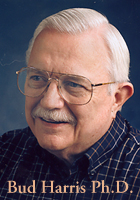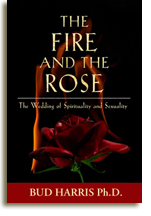Every week, and sometimes daily, I receive an email asking for advice about individuation. These requests must be very personal for the sender because they are sent to me and not put on my blog. People want to know some very specific things. Is this is a life-long process? Does it come in waves? Can seeking become a compulsion that can devour us? Does life’s pain ever stop or stop getting worse? And how do we know when we are healed or whole? Unfortunately, I can’t respond at length to everyone, so I am going to try to formulate some general guidelines from my experience which I hope people will be able to adapt to their own circumstances.
| I have always been a fairly intense and stubborn person who didn’t change course easily. So early on, my individuation was driven by a combination of “shipwrecks” and desperation. But, that, as I became more self-aware, didn’t last. I am also a fast learner and quickly realized our journey into wholeness or individuation requires devotion to the development of self-knowledge and transformation. Our struggles with living and to understand ourselves release the symbol or image that can lead us into transformation and new life.
For example, the image of conventional success took me out of my struggling college years and the semi- autistic shell of a traumatized childhood and into young adulthood. It wasn’t sustainable long-term because it wasn’t built on a firm inner foundation. Conventional success was also a too collective and impersonal value and soon evolved into a false self. And yet, the confidence in my ability to become successful became the foundation that enabled me to risk change and transformation for the rest of my life.
But, this image served its purpose and the life it carried me into was no mistake because it later broke down. Once this period in my life had served its purpose, its end, when recognized, became a turning point, and its prior success had given me the strength to take the next step. It was a process that was not achieved gracefully or happily, by the way, but that transformed my life for the better.
Secretly most of us want happiness, success, love, peace of mind, and good relationships without having to change our habits, priorities and lifestyles-much less having to confront ourselves and discover the real reasons why our life isn’t fulfilling. Individuation, it seems, is initially, and maybe continually, troubling to us because it forces us to simplify our lives in order to create the space for accepting our complexity. Once we have taken this path, we realize that the question isn’t whether we are happy or not, or whether we are at peace or in turmoil. The reality is that in our complexity, struggles, conflict, peace and happiness, along with sadness, despair and joy may be-and usually are-all going on at the same time. I often think that being at peace with the genuine nature of life’s complexity is the beginning of wisdom. My image of conventional success as a guide into life began to break down when it was fulfilled, when I had achieved a certain level of success, thus, setting the stage for a new turning point. By this time, I had begun to wake up to the fact that life was more profound, and a more continuous adventure than I previously thought. That meant I could no more choose to keep living in the old way than a lobster can continue living in an outgrown shell. Plus, I had to confront the inner split of having a successful appearance, as well as an inner emptiness that contained a well of unrecognized pain and depression. The healing work that followed took several years of exploratory and person-centered mirroring psychotherapy. During that period, inner wounds and struggles were often reflected in outer conflicts and failures in business and marriage. However, my life was already becoming more full and complex and there were rewarding moments of happiness, realization, and a new confidence in myself and the future. In my personal and professional experiences, I see that analysis, healing, transformation and individuation, in general, most frequently falter because of our lack of courage in making the rituals that support them sacred parts of our everyday life. These rituals aren’t a matter of discipline, but a matter of love. Analysis and inner work need to be a ritual of showing up for our self, of valuing life-our life-in a sacred way-a way that is valued above busyness, money, obligations and the other primary defense mechanisms we have against valuing the meaning of life. As long as I am pursuing my inner work, the transformative images come when I need them. They come in many forms, in people I meet or read about, in dream images, in active imagination and even in the worlds of my analysands. I talk about a number of them in my new book, The Fire and the Rose. In midlife, one image came to me in a startling dream. I awakened, aroused by a single image, that of a naked, starving woman sitting in a straight chair. The chair was in the shadows of a damp prison cell whose only light came from a tiny barred window high above her head. I lay in the dark pondering this dream and by the time I felt compelled to get up and write it down, I knew a new period of transformation had to start. Over time I began to see this woman as an image of my soul. I was convinced I needed to learn how to free her, or I would have a heart attack or some other illness, that whatever yearning was imprisoned would soon turn toxic. I had already taken many risks, paid heavy prices and once again established a good life. Even my analyst lacked faith in the process taking place and seemed unconvinced that I needed further transformation. I had never felt so alone. But, as I continued to work with this image of the poor starved woman, the image helped me understand that my despair was my yearning passion that my ego wasn’t yet strong enough, brave enough, to live. This awareness caused me to change analysts and eventually move to Zurich to study and become an analyst myself. The painful experience of facing and healing early wounds shouldn’t dominate our process forever, and for some of us it never dominates. It only becomes part of the fabric of life we are weaving. Individuation is essentially a creative task that, while it is rooted in our past, is leading us into a bigger experience of life. This isn’t to say that we don’t visit early wounds over and over, but we do so, as James Hillman has said, to lick the healing salt from them, for they have a lot to do with shaping who we are, and our destinies. If we have been severely traumatized early on, it means that psychologically we have become split against ourselves and a part of us will fight the images of wholeness and transformation (and our analysts) that are trying to lead us into life. We are often left bitter, cynical and distraught because we want a good life, a fulfilling career, and a soulful relationship without ever having to carry any more crosses. In individuation and inner work there should also be a turning point where it becomes obvious that it is life- enhancing. If this doesn’t happen, if one is stuck, there is usually a failure to find or accept the transformational image, to be able to keep one’s complexes from attacking it or to give up the longing for an easier answer. All of these can be helped by deeper analytic work with a knowledgeable and experienced analyst. It took me a long time to pick up my cross and walk into the heart of my woundedness (which doesn’t mean to embrace it as some misguided approaches to healing suggest). It took me a long time to admit how much some things in my childhood and early adulthood hurt me, shaped my life, and paradoxically created my destiny. But, each realization was a step toward freedom when it was accepted and not used as an unconscious excuse for living defensively or staying stuck in my own inertia. Becoming an analyst was also a transformative image. The paradox is that to really become an analyst, we must first follow the dictum “physician, heal thyself.” And, for Jungians transformation is what brings healing, and to choose transformation is to choose life. |
|
The Fire and the Rose can be purchased wherever books are sold. In the Asheville, NC area, you can by this book at Accent on Books, Malaprops, and other fine bookstores. Or, you can save 20% off the regular price of $19.95 by ordering direct from the distributor, Lantern Books at $15.96.
|
|
FUTURE TOPICS under consideration are:1. “The Development of Spiritual Consciousness: Individuation and Mysticism”
2. “Body and Soul: Illness and the Healing Power of the Shadow” 3. “Living a Mythic Life: What is Your Myth or What Myth is Living You?” 4. “Weight: Is the Shadow Confronting, Comforting, or Protecting Us?” 5. “The Fear of the Feminine: How it Affects Our Lives and Relationships?” |
Articles by Drs. Bud and Massimilla Harris



Comments are closed.